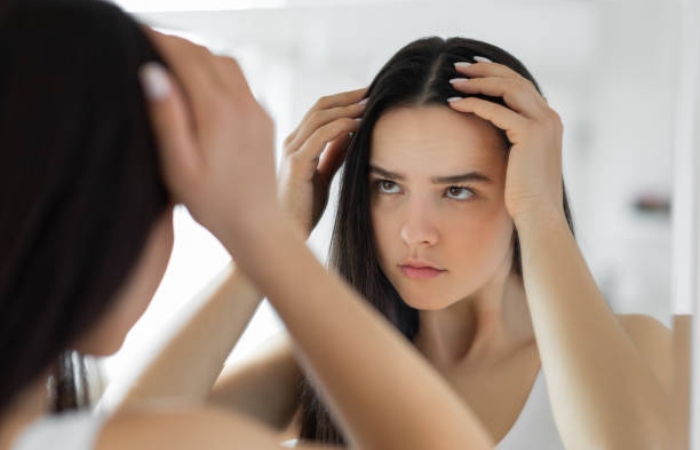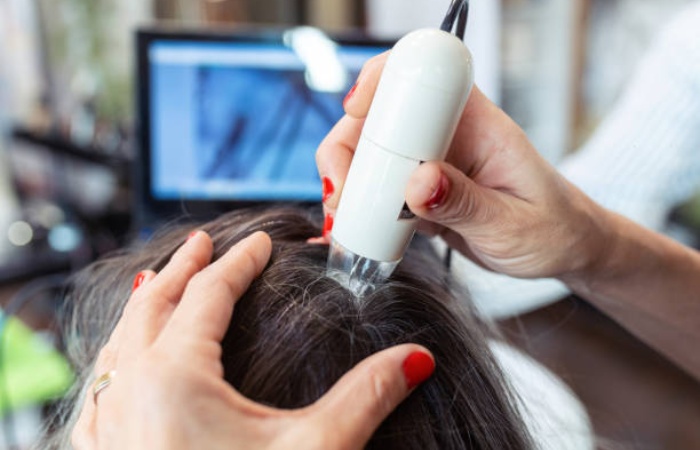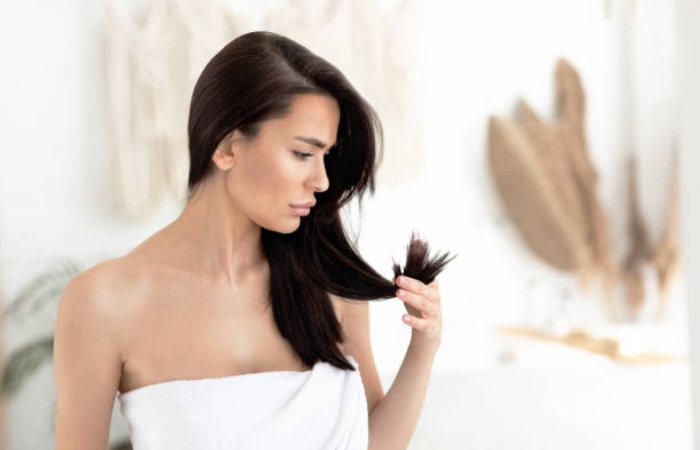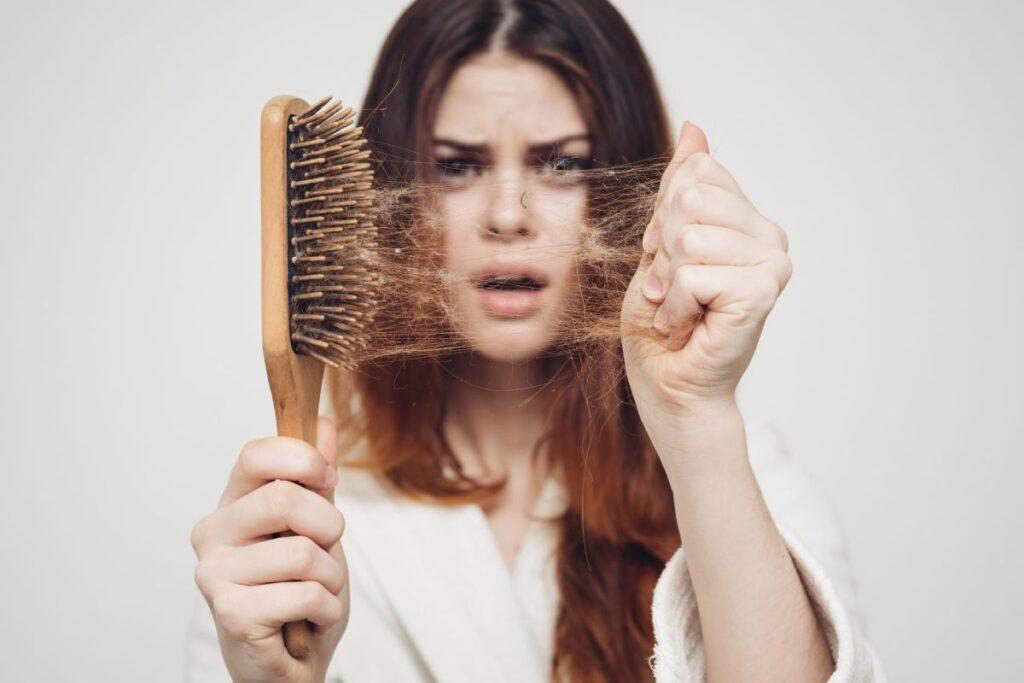Women’s Hair Loss is a common problem that many women face at some point in their lives. It can be caused by several factors, from genetics to lifestyle, and often affects a woman’s self-esteem and sense of beauty. Hair is not only part of a woman’s appearance but also plays an important role in her personality and self-confidence.
For those looking for solutions, hair loss treatment options for women are available to help restore both hair health and self-confidence. Hair loss can be an expressively challenging experience, so finding the right solutions to fix hair health and self-confidence is essential.
This article will look at the causes of hair loss in women, the emotional consequences it can have, and the most effective treatments that can help restore both confidence and beauty in women’s hair loss.
Understanding Hair Loss in Women

Hair loss in women refers to the thinning or loss of hair that can occur gradually. For many women, this condition becomes especially noticeable as they age. Still, it can also be caused by other factors such as stress, hormonal changes, illness, or poor hair care practices. The nature and extent of hair loss can vary, but the underlying causes often have common roots, such as genetics, lifestyle factors, and health conditions women’s hair loss.
When women experience hair loss or thinning, it can profoundly impact their appearance and overall sense of self-worth. For many, hair is considered an essential part of beauty and femininity. Losing your hair can feel like losing part of your identity, so addressing the problem as soon as possible is necessary to maintain healthy hair and your emotional well-being.
The Emotional Consequences of Hair Loss in Women
Hair plays a major role in shaping a woman’s self-esteem. Hair is often related to beauty, femininity, and vitality. As a result, hair loss can have serious emotional consequences. Many women feel less attractive, anxious, or even depressed because of changes in their appearance. These feelings can be complicated when society highly values thick, full hair as a symbol of youth and beauty. Hair loss can lead to social isolation, decreased self-confidence, and reluctance to participate in social or professional activities women’s hair loss.
Additionally, the psychological impact of hair loss can go beyond emotional stress. It can affect relationships, self-esteem, and mental health. Women who experience hair loss or baldness may feel insecure and less confident, sometimes making them hesitant to participate in activities that once brought them joy. It is essential to recognize that these emotional effects are real and should be addressed along with physical treatment for women’s hair loss.
Diagnosing Hair Loss in Women

Before attempting any hair loss treatment, you must first understand the cause. Consulting with your doctor is an essential first step in accurately diagnosing the condition. A thorough medical examination, including blood and scalp examinations, may be necessary to determine the underlying factors contributing to women’s hair loss.
Women who experience significant hair thinning or loss should see a dermatologist or trichologist (a hair and scalp specialist). These specialists can identify potential causes, such as hormonal imbalances, thyroid problems,
iron deficiency, or other medical conditions contributing to women’s hair loss. By placing the root cause, women can receive customized action plans that meet their specific needs, increasing the chances of successful hair regrowth.
Review of effective treatments for hair loss in women.
Once diagnosed, several treatment options are available to help combat hair loss in women. One of the most common treatments for hair loss in women is topical minoxidil. Over-the-counter minoxidil is applied straight to the scalp to stimulate hair growth. It is often used as a long-term solution for women suffering from alopecia, which is one of the most common types of women’s hair loss.
Another option includes prescription medications such as finasteride, which chunks the hormone responsible for hair loss. For women feeling hair loss due to hormonal changes, hormone replacement therapy (HRT) may also be considered. HRT helps balance hormone levels, which can often reverse hair loss caused by menopause or other hormonal disorders.
In addition to medical treatment, some women turn to natural remedies and lifestyle changes to maintain healthy hair. Eating a nutritious diet rich in vitamins and minerals, especially those that promote hair growth, such as
biotin, iron, and zinc, can be beneficial. Regular exercise is another important aspect of maintaining overall health, as it improves blood circulation, promoting hair growth women’s hair loss.
For those seeking more advanced solutions, hair transplant surgery is an option. It involves removing healthy hair sacs from one part of the scalp and transplant them to areas with thinning or balding. The procedure has shown positive results for many women, although it has higher costs and a more extended recovery period.
Steps to Improve Hair Health and Prevent Further Loss

Maintaining healthy hair is not limited to treating hair loss; it is also essential to take proactive steps to prevent further hair loss and promote strong, healthy hair. Establishing a regular hair care routine is vital. Handling hair with gentle, sulfate-free shampoos, conditioning it regularly, and avoiding harsh styling tools or chemical treatments can help minimize hair damage.
Including a balanced diet is another important aspect of hair care. Eating a variety of whole foods, including lean proteins, fruits, vegetables, and healthy fats, can support overall hair health. Women should also ensure they are getting the right vitamins and minerals essential for hair growth. Foods rich in biotin, omega-3 fatty acids, and iron are especially important for strong, healthy hair.
Stress organization also plays a significant role in preventing hair loss. Chronic stress can disrupt the normal hair growth cycle and lead to excessive hair loss. Finding ways to manage stress, such as meditation, yoga, or regular physical movement, can help improve your overall health and prevent stress-related women’s hair loss.
Success Stories: Restoring Confidence and Beauty After Hair Loss
Each woman’s path to hair restoration and self-confidence is unique, but many success stories highlight the power of perseverance and proper treatment. Women who have experienced significant hair loss often share their
experiences of finding practical solutions that have helped them regain their hair and self-esteem.
Some women succeed by combining medical treatment with lifestyle changes, while others see positive results
with natural remedies or nutritional supplements. Whatever the approach, a common theme in these stories is the importance of seeking help, persevering through treatment, and adopting a mindset of self-love and positivity women’s hair loss.
Regaining confidence is not just about restoring hair but also about removing the emotional impact of hair loss. Many women find inspiration by learning new hairstyles, wearing wigs or extensions, or simply accepting and loving their new look. The most important step in any hair restoration process is realizing that beauty comes in many forms and that confidence reflects self-acceptance.
Conclusion
Hair loss in women is common and often emotionally challenging, but it is also a condition that can be effectively achieved with the proper treatment and lifestyle changes. By understanding the causes of hair loss, seeking
professional advice, and choosing the right treatment options, women can reinstate their hair and regain their confidence and beauty. It is important to take proactive steps to care for your hair, manage stress, and maintain a
healthy lifestyle to stop further hair loss and promote growth.
Whether through medical treatment, natural remedies, or lifestyle changes, women experiencing hair loss should remember that they are not alone. Proper care and support make it possible to restore your hair and confidence and ultimately embrace a healthier, happier version of yourself women’s hair loss.


